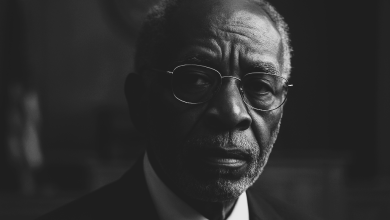TikTok, Data Wars, and Africa’s Legal Blind Spot: Why the Continent Must Wake Up Now
By: Bryan Miller

In recent years, the world has watched as TikTok, the wildly popular social media app, faced mounting legal and political scrutiny in countries like the United States. Concerns about data privacy, surveillance, and national security have dominated headlines, forcing governments to take decisive action. While these debates rage on, Africa remains largely silent on such matters, revealing a troubling gap in the continent’s approach to regulating technology.
The TikTok saga offers a lesson for Africa a wake-up call to address its own vulnerabilities and establish clear, unified policies for managing the intersection of technology and law.
The Problem with Silence
Africa’s tech landscape is expanding at a breakneck pace. From mobile banking apps revolutionizing finance to social media platforms transforming communication, technology is reshaping the continent. Yet, many African countries lack comprehensive policies to protect users’ data and regulate the influence of foreign tech giants.
In the absence of strong frameworks, foreign companies often exploit these gaps, collecting and storing vast amounts of user data without significant oversight. This leaves African nations vulnerable to potential breaches, surveillance, and even manipulation. If a global debate like the TikTok court ban were to erupt on the continent, would African governments be equipped to respond?
The Need for Regional Collaboration
One of the significant challenges Africa faces is its fragmented approach to tech regulation. Each country operates within its own jurisdiction, creating inconsistencies that tech companies can exploit. For instance, Nigeria’s laws on data privacy are markedly different from those of South Africa or Kenya. This lack of coordination means that a company like TikTok could face scrutiny in one country while operating freely in another.
The African Union (AU) and regional economic blocs like ECOWAS and SADC must step up to create unified policies for the continent. A shared framework would enable African nations to collectively negotiate with tech giants, ensuring that they adhere to local laws and prioritize user safety across the board.
Data Sovereignty: A Growing Concern
The TikTok controversy underscores the importance of data sovereignty ensuring that data collected within a country is stored and managed locally. For Africa, this is particularly crucial. Many African users’ data is stored in servers located outside the continent, often in countries with little regard for African interests.
Without control over where and how this data is stored, African nations risk losing their digital sovereignty. This not only poses security risks but also denies African governments the ability to fully enforce their own laws.
What African Courts Can Do
African courts have a pivotal role to play in addressing these challenges. If a TikTok-style controversy were to arise, courts would need to act as impartial arbiters, balancing national security concerns with individual rights like freedom of expression. However, this requires judicial systems that are independent, well-resourced, and equipped to handle the complexities of tech-related cases.
Additionally, courts can set precedents that shape how tech companies operate in Africa. For instance, a ruling on data privacy in one country could inspire similar legal actions across the region, creating a ripple effect of accountability.
The Role of Citizens and Civil Society
It’s not just governments and courts that have a role to play. African citizens must become more aware of their digital rights and demand greater transparency from both governments and tech companies. Civil society organizations can help bridge the knowledge gap by educating the public and advocating for stronger laws.
A Way Forward
The TikTok court ban saga in America highlights the urgent need for Africa to take its digital future seriously. This is not just about TikTok or any single platform it’s about ensuring that Africa is prepared to navigate the challenges and opportunities of the digital age.
By creating unified regional policies, prioritizing data sovereignty, empowering courts, and engaging citizens, Africa can take control of its tech landscape. The time to act is now, before the next global tech controversy arrives at Africa’s doorstep.
The question remains: will Africa rise to the challenge, or will it remain on the sidelines while others shape its digital destiny?




